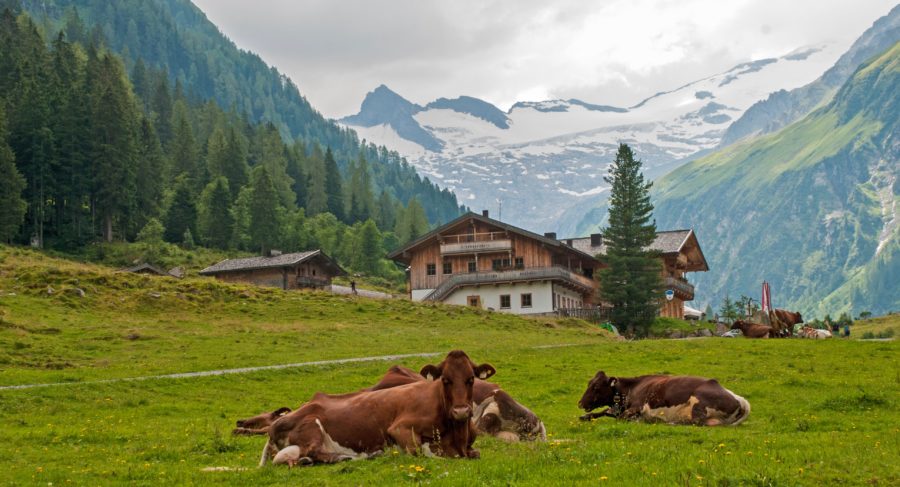Read about the rising resource for travel inspiration, getaways to avoid overtourism, what impacts most the booking decision, and a new way of experiencing travel.
Another year has passed, and oh, boy, it wasn’t an easy one. It feels like we traded restrictions and uncertainty for new challenges in the travel sector. But with these challenges, opportunities arise that can quickly convert into trends. We’ve selected for you 4 hot topics that will impact travel in 2023 and ahead:
Netflix & Travel
Since the beginning, TV shows have brought consumers closer to unknown realities. With the rise of streaming and vlogging, TV became a primary source of inspiration for travelers worldwide.
Almost 7 out of 10 travelers consider booking a destination after seeing it featured in a show or a movie.
39% of consumers booked a destination after seeing it in a show.

Take Game of Thrones as an example, it’s one of the most-watched shows worldwide. It is estimated to have brought $200 million in tourism revenue to Croatia in just 5 years. The destination has quickly caught the trend – Dubrovnik, the main filming location for King’s Landing, now offers “Walk of Shame” tours after the iconic scene from the show.
Vlogs are also connecting eager travelers with new places and experiences. Many destination organizations have incorporated partnerships with famous vloggers to showcase famous landmarks, traditions, or food experiences. The popular Mark Wiens’ food tour sponsored by #visitTrinidad has videos hitting between 1 and 2 million views.
Getting the Most for the Least
We’ve all been feeling the impact of global economic uncertainty. With prices going up, travelers also became more budget-conscious when planning a trip. However, this has not impacted the overall travel intent. Investing in a vacation still remains a top priority for half of the travelers.
In 2023, travelers will plan based on the best price available. More than 6 out of 10 travelers hope to reduce their budget through tips & tricks, deals, and thorough planning. 53% consider traveling off-season to reduce costs.
When looking for accommodations, guests search for “affordable yet comfortable” options. Expedia points out that more travelers are looking into booking 1 to 3-star hotels.
35% of travelers intend to book 1 to 3-star hotels in 2023.
Haycations
Haycations are all about countryside retreats. From converted barns to agrotourism activities, haycations offer the escape, quietness, and closeness to nature many travelers are searching for.

Haycations can be great alternatives to overcrowded and suffocated tourist destinations. Booking platforms are continuously configuring their search algorithm to focus more on rural and remote areas— in an effort to decrease overtourism and promote sustainable venues.
For example, Airbnb made rural areas more visible on their platform. In 2019, the top 10 European cities accommodated 20% of all European trips. Now the demand has decreased to 14%, while rural stays have registered an increase of 55% on the platform.
Virtual Travel
It’s still weird to think of traveling as an experience you could enjoy in a digital world. But there is an immense opportunity to use the Metaverse in the hospitality industry. Travelers could virtually explore your hotel rooms, property, and amenities that received positive reviews. It’s like a free trial package to help travelers book with you.
And the interaction doesn’t have to end here. Once they book with you, the guests can explore the best way to get from the airport to your hotel. Post-stay, the Metaverse can serve as a place for your guests to share their experiences – almost like a virtual focus group.
Looking at destinations, some have already made their first virtual steps. Cities and governments are looking into the Metaverse as a way of replicating some of their services, encouraging knowledge sharing, and increasing the visibility of tourist attractions.
A sad yet unavoidable event is attached to the first government aiming at replicating itself in the Metaverse. Tuvalu, a nation comprised of 9 islands in the South Pacific, looks at preserving its culture and traditions via the Metaverse. The country will most likely be underwater by the end of this century, with the capital currently being 40% flooded at high tide. It’s a desperate cry for help to delay the gloomy predictions.
Other cities are entering the Metaverse as trend-setters and outliers. For example, Seoul released the “virtual municipal world” beta version in September 2022 to a limited number of users for testing and improving the universe and its services.
Virtual tourism is still at its very beginning. While some mavericks shape travel in the Metaverse, it will remain a trend for destinations and hotels with well-defined technological infrastructure and big budgets. At least for a while.
Many other trends continue to transform travelers and the industry. Having the right data by your side will help you stay ahead of the trends, deliver a unique experience for your travelers and improve operational performance.
What about your hotel or destination? What are the trends relevant for you in 2023?